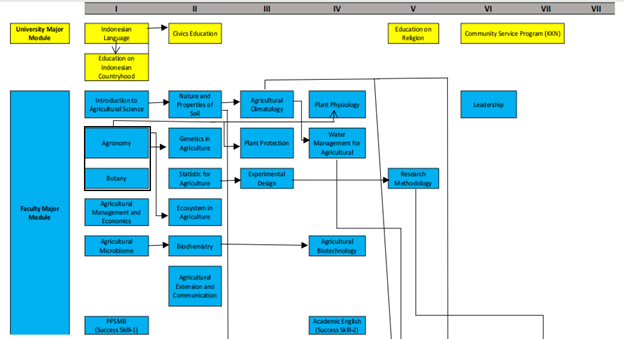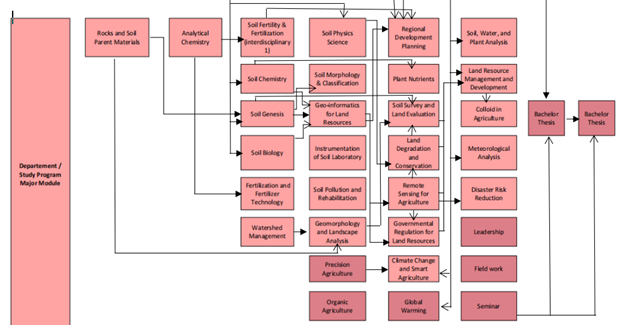The curriculum of the Soil Science Study Program is designed with a structure as shown in Figure 2. The courses given in the Soil Science Study Program are grouped into 9 (nine) categories: General Basics, Basic Sciences, Agricultural Basics, Agricultural Advances, Soil Science Basics, Soil Science Advances, Electives , Support, Design and Report
The curriculum applied in the Soil Science Study Program is based on student-centered learning. There is no block system in the Soil Science Study Program so students are expected to control their own study time.
Teaching and learning activities are organized into several types of teaching and learning methods. Cognitive knowledge is gained from lectures (internal or guesswork), assigned readings, self-study, literature review, and problem-based learning. Technical skills are acquired through hands-on lab work, fieldwork, presentations, discussions, seminars, and research.
Students gain the ability to integrate, transfer, and apply knowledge through the interactive nature of lessons, using relevant course materials, articles, real case studies, self-study, assignments, and research. For attitude, students benefit from in-class discussion, classroom ethics and norms, direct feedback from instructors, and submission of manuscripts. In addition, we ask students to participate and lead the land student club.


